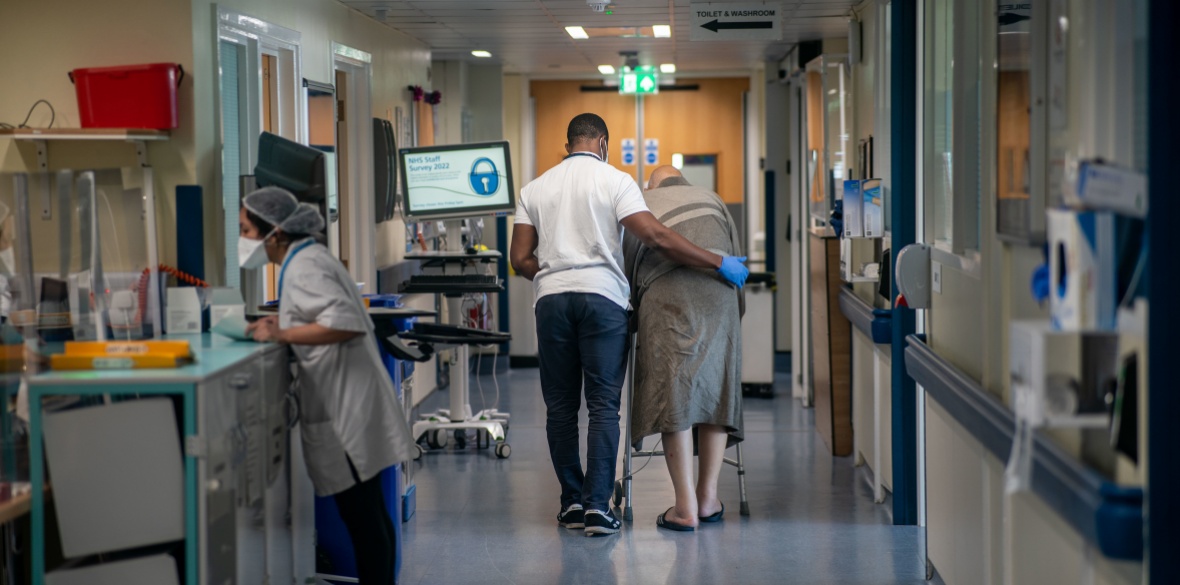This is the last article you can read this month
You can read more article this month
You can read more articles this month
Sorry your limit is up for this month
Reset on:
Please help support the Morning Star by subscribing here
HEALTH campaigners condemned the handing of yet more NHS cash to private-sector profiteers today, in what’s being billed as the government’s latest attempt to tackle record waiting lists.
Taxpayers are to fund 13 new community-based centres to diagnose patients.
But eight of the centres are set to be run by private companies paid to give treatments.
Plans for the new centres were announced by the Department of Health and Social Care (DHSC), aiming to reduce record waiting lists of 7.47 million patients.
Treatment at the private centres will remain free to patients, however campaign group Keep Our NHS Public (KONP) warned such initiatives are draining £19 billion from the NHS and handing it to profiteers.
KONP co-chair and retired paediatrician Dr John Puntis said “chronic and severe underfunding” was the cause of the public service’s problems – and that the private sector was a “parasite.”
He told the Morning Star: “Giving £19bn to the private health sector is about as intelligent as committing to net zero and then handing out over 100 new oil and gas licences.
“The private health sector is a profit maximiser and not a cost minimiser.
“It is parasitic upon the NHS and does not train its own staff but takes them from the NHS.
“There is therefore only one pool of staff and if more work is done in the private sector less is done in the NHS.”
Dr Puntis said that the only long-term solution is “adequate investment in the NHS based on its original founding principles and long-term planning for the future.
“This is urgent because a failing health service ultimately leads to a failing economy,” he added.
The NHS is short of 140,000 staff – including 48,000 nurses – and is struggling to retain workers after years of real-terms pay cuts.
Healthcare research group the Nuffield Trust warned the government against “longer-term and unintended consequences” of handing yet more NHS work to the private sector.
Director of strategy Helen Buckingham said less cash would be available for NHS costs such as staffing, drugs and fuel.
“Waiting times for tests, scans and results were growing before the backlogs caused by the pandemic, fuelled by growing demand, lack of investment in new equipment and shortages of trained specialists,” she said.
Ms Buckingham said private-sector involvement “does not fix the root of the issue or provide the NHS with the resources it needs to meet the demand on it for the longer-term.”
Campaign group Doctors for the NHS dismissed the government’s plan as “Elastoplast” and “a necessary temporary fix at best, a distraction at worst.
“Any government worth its salt would fix the gaping wounds caused by decades of neglect: with proper NHS investment,” the group said in a statement.

 Peter Lazenby
Peter Lazenby








